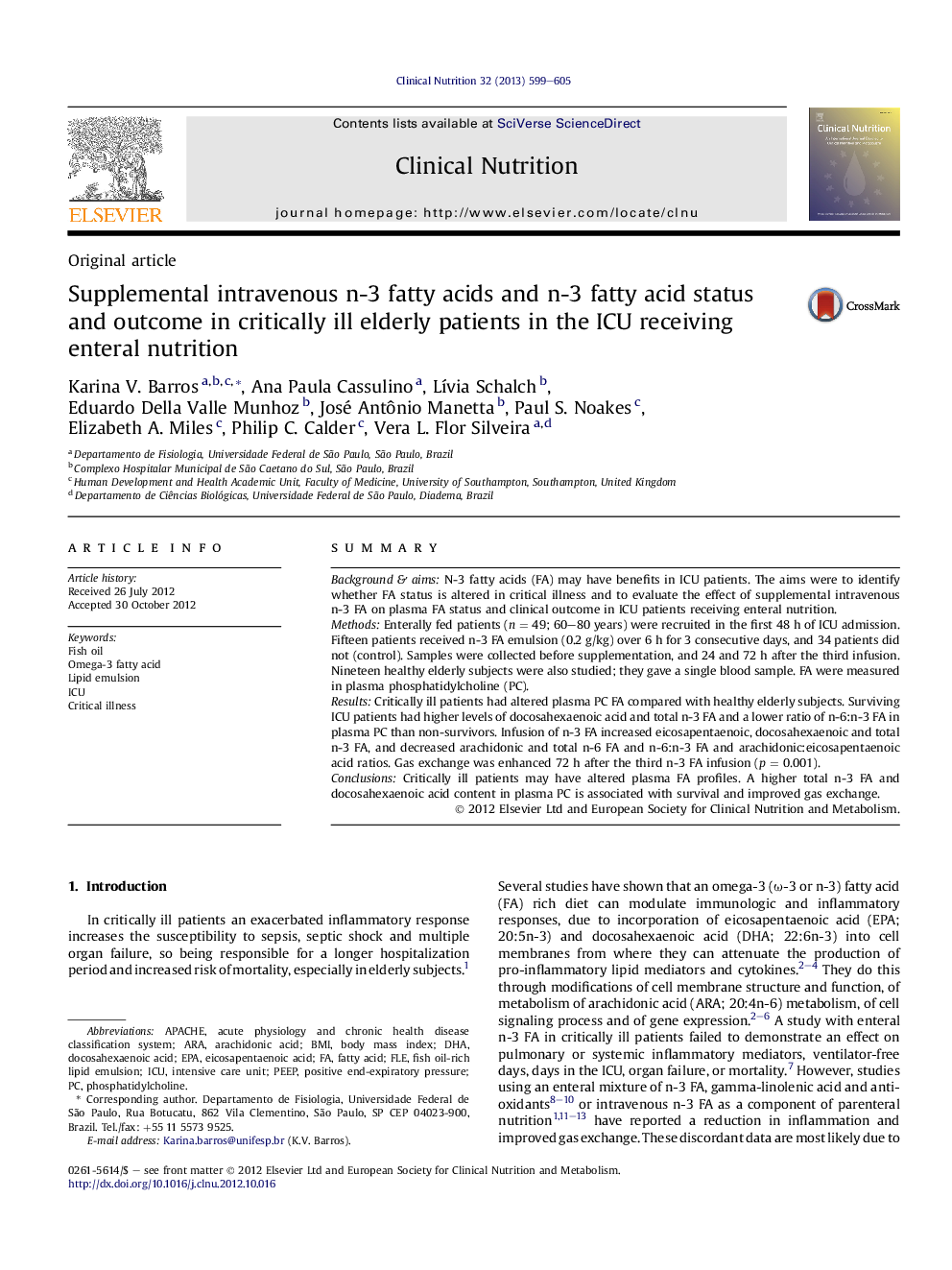| Article ID | Journal | Published Year | Pages | File Type |
|---|---|---|---|---|
| 2684001 | Clinical Nutrition | 2013 | 7 Pages |
SummaryBackground & aimsN-3 fatty acids (FA) may have benefits in ICU patients. The aims were to identify whether FA status is altered in critical illness and to evaluate the effect of supplemental intravenous n-3 FA on plasma FA status and clinical outcome in ICU patients receiving enteral nutrition.MethodsEnterally fed patients (n = 49; 60–80 years) were recruited in the first 48 h of ICU admission. Fifteen patients received n-3 FA emulsion (0.2 g/kg) over 6 h for 3 consecutive days, and 34 patients did not (control). Samples were collected before supplementation, and 24 and 72 h after the third infusion. Nineteen healthy elderly subjects were also studied; they gave a single blood sample. FA were measured in plasma phosphatidylcholine (PC).ResultsCritically ill patients had altered plasma PC FA compared with healthy elderly subjects. Surviving ICU patients had higher levels of docosahexaenoic acid and total n-3 FA and a lower ratio of n-6:n-3 FA in plasma PC than non-survivors. Infusion of n-3 FA increased eicosapentaenoic, docosahexaenoic and total n-3 FA, and decreased arachidonic and total n-6 FA and n-6:n-3 FA and arachidonic:eicosapentaenoic acid ratios. Gas exchange was enhanced 72 h after the third n-3 FA infusion (p = 0.001).ConclusionsCritically ill patients may have altered plasma FA profiles. A higher total n-3 FA and docosahexaenoic acid content in plasma PC is associated with survival and improved gas exchange.
